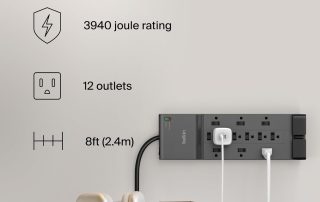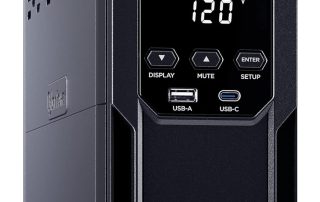Introduction to Home Office Cybersecurity
As more and more people are working from home, the need for proper cybersecurity measures is becoming increasingly important. Remote workers face unique challenges when it comes to protecting their devices and sensitive information from cyber threats. In this blog post, we will explore some of the most common security risks that remote workers face and how you can secure your home network against them.
Common Threats and Vulnerabilities for Remote Workers
One of the biggest risks faced by remote workers is hacking. Hackers use various techniques such as phishing emails or malicious software to gain access to your device and steal sensitive data. Another risk is unauthorized access to your Wi-Fi network, which could allow attackers to intercept your traffic and steal your passwords. Additionally, ransomware attacks have become increasingly popular in recent years, where attackers encrypt your files and demand payment in exchange for the decryption key.
How to Secure Your Home Network
There are several steps you can take to improve your home office cybersecurity:
1. Use strong passwords – make sure all your accounts have unique and complex passwords that cannot be easily guessed.
2. Install antivirus software on all your devices – this will help detect and remove any potential malware.
3. Keep your operating system up to date – regular updates often include security patches that fix vulnerabilities.
4. Enable two-factor authentication whenever possible – this adds an extra layer of protection to your accounts.
5. Set up a hardware firewall – this will provide additional protection against incoming threats.
The Importance of Using Strong Passwords
Strong passwords are essential for keeping your online accounts safe. Avoid using simple words or phrases, and instead use a combination of uppercase and lowercase letters, numbers, and symbols. It’s also recommended to use password managers to generate and store complex passwords.
Do You Need a Hardware Firewall at Home?
A hardware firewall is a physical device that sits between your router and modem, providing an additional layer of protection against incoming threats. While many routers come with built-in firewalls, they may not offer enough protection against advanced threats. If you work remotely and handle sensitive information, investing in a hardware firewall is highly recommended.

Conclusion: Taking Action Towards Better Security
Protecting your home office from cyber threats requires vigilance and proactive measures. By following best practices like using strong passwords, updating your software regularly, and setting up a hardware firewall, you can significantly reduce your risk of falling victim to cyberattacks. Remember, prevention is always better than cure, so taking action now can save you time, money, and stress in the long run.
Are There Any Work From Home Jobs That Are Not Scams
Looking for legitimate work from home jobs? Read this article to find out how to avoid scams and discover genuine remote job opportunities.
Comparing Top Surge Protector Power Strips: Belkin, 18 Outlets, SUPERDANNY
Looking for a reliable power strip surge protector? Compare the top options: Belkin, 18 Outlets, SUPERDANNY. Find the perfect one for your needs.
Comparing CyberPower, APC & QIAN: UPS Systems Reviewed
Looking for reliable backup power solutions? Check out our roundup of CyberPower, APC, and QIAN UPS systems. Find the best fit for your needs!
Comparing 3 LED Desk Lamps: SuperDanny, ACNCTOP, Voncerus
Looking for the perfect LED desk lamp? Check out our roundup comparing the SuperDanny, ACNCTOP, and Voncerus lamps. Find your ideal lighting solution today!
Webcam Review: Logitech C920x vs NexiGo N940P vs 1080P Webcam
Hey there! Looking to upgrade your video conferencing setup? We've got you covered with three fantastic webcam options to help you stay connected with your loved ones, colleagues, and clients. In this...
Printer Showdown: ET-4800 vs ET-2850 vs ET-15000
Looking for a new printer? Check out our Printer Showdown: ET-4800 vs ET-2850 vs ET-15000. Compare features and find the perfect fit on Amazon.







